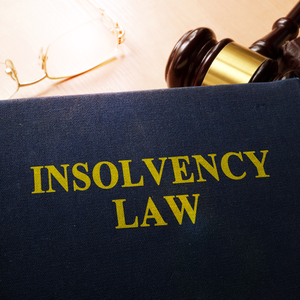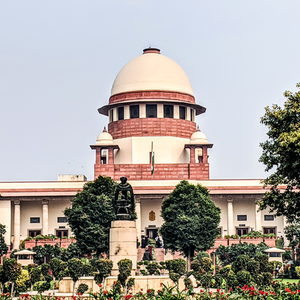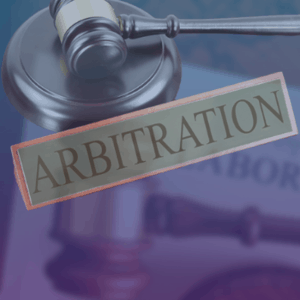Qualifications
Memberships
About
Renjith is a partner in the dispute resolution practice group at Acuity Law. He specializes in dispute resolution and arbitration (domestic and foreign seated) and has advised and represented clients from diverse sectors such as aviation, logistics, manufacturing, healthcare, financial advisory, consulting, staffing as well as high net worth individuals. Renjith is regularly involved in representing clients in corporate, commercial, constitutional and regulatory disputes before various courts and tribunals including, the High Court of Bombay, National Company Law Tribunal, Securities Appellate Tribunal as well as ad-hoc and institutional arbitration tribunals.
- Representing and advising a Japanese logistics company on Indian law in a Singapore-seated arbitration and for enforcing the arbitral award in India.
- Representing and advising a non-resident Indian in an India seated international commercial arbitration proceedings against an Indian startup company.
- Representing and advising an Indian aviation company in seeking pre-award interim reliefs against an Australian aircraft leasing company.
- Representing and advising a Singaporean logistics company in pursuing its claim against an Indian company placed under insolvency and subsequently, liquidation under the Indian insolvency law.
- Representing and advising a Japanese international engineering consultancy services company in a shareholder’s dispute with an Indian shareholder.
- Representing and advising an Indian corporate shareholder of an Indian manufacturing company in shareholder’s dispute with fellow corporate shareholders.
- Representing and advising a Singaporean logistics company in a garnishee proceeding before an Indian court.
- Representing and advising an Indian security service provider company involving termination of services agreement.
- Representing and advising an investor against a prominent stock exchange before the Securities Appellate Tribunal.
Articles

Sale consideration deposited in Escrow Account – Event of Taxability
Corporate transactions and their related intricacies have always been a subject of frequent discussions in the corporate world. With changing commercials globally, there is an innovation in the commercial terms being agreed between the parties. With growing regulatory concerns and rise in tax claims with no certainty, a need arises to protect the interest of […]

Compulsorily Convertible Debentures: Whether debt or equity?
Compulsorily Convertible Debentures (CCDs), a hybrid instrument, has gained prominence in the last two decades. However, its classification as equity or debt has been the subject of discussions, mainly due to conflicting perspectives under different laws. This initial divergence surfaced from the framework of guidelines under the Foreign Exchange Management Act, 1999 (FEMA), which deemed […]

The triumph of arbitration clauses in insufficiently / unstamped agreements!
The Supreme Court in In Re: Interplay between Arbitration Agreements under the Arbitration and Conciliation Act 1996 and the Indian Stamp Act 1899 has finally put the issue to rest. A 7-Judge Bench of the Supreme Court has held that arbitration can be validly invoked on an insufficiently / unstamped agreement and the issue of payment of stamp duty shall thereafter be decided by the arbitral tribunal itself.

Delhi High Court: Directors cannot be made parties to the arbitration proceedings against the company through the group of companies doctrine
The Delhi High Court in its recent decision of Vingro Developers Pvt. Ltd. v. Nitya Shree Developers Pvt. Ltd. held that the directors of a company cannot be made parties to the arbitration proceedings against the company under the group of companies doctrine. While distinguishing the facts of the matter from the recent Supreme Court […]

Group of Companies Doctrine in Indian Arbitration Landscape: The Dust settles
One of the reasons why arbitration is a highly preferred mechanism for adjudicating commercial disputes is that it provides clarity to the parties with respect to the forum that will adjudicate over the disputes arising out of the agreement. However, in certain cases, a party to the arbitration may want to involve a non-signatory to […]

Arbitration and Insurance: IRDAI’s New Circular
The Insurance Regulatory and Development Authority of India (IRDAI) recently issued a circular titled “Amendment of Arbitration Clause in General Insurance Policies” dated 27 October 2023 (read here), which limits arbitration clauses in insurance policies only to commercial lines of business. Key directives from the circular include: Arbitration clauses will be excluded from all retail line of […]

Supreme Court affirms equal treatment of homebuyers under the Insolvency and Bankruptcy Code, 2016
Introduction The financial implications for homebuyers in the context of the Insolvency and Bankruptcy Code, 2016 (Code) have been a subject of legal scrutiny. According to the Code, funds raised by a real estate company from a homebuyer or allottee are categorized as financial debt, granting them the status of financial creditors. This designation empowers […]

Contours of urgent interim relief under pre-institution mediation
Introduction Since its introduction by way of an amendment in 2018, Section 12A of Commercial Courts Act, 2015 (Act) has garnered significant attention, specifically regarding the mandatory requirement for pre-institution mediation. Further a question arose as to whether suits instituted without recourse to mandatory pre-institution mediation ought to be rejected upon an application being filed […]

Supreme Court clarifies law on MSME Registration during CIRP
The Supreme Court in Hari Babu Thota (read here) has ruled that a Corporate Debtor’s promoter can submit a resolution plan under the Insolvency and Bankruptcy Code, 2016 (Code) even if the Corporate Debtor obtains its Micro Small Medium Enterprise (MSME) registration after being admitted into Corporate Insolvency Resolution Process (CIRP). The Supreme Court overturned the National Company Law […]

Leased petroleum assets to be exempt from moratorium under the Insolvency and Bankruptcy Code, 2016
By a notification dated 14 June 2023 (read here), the Ministry of Corporate Affairs has exempted petroleum assets leased by a company undergoing insolvency proceedings from the moratorium provisions of the Insolvency and Bankruptcy Code, 2016. The exemption ensures that oil wells do not become inactive if a company faces insolvency, allowing the Ministry of Petroleum […]

Unilateral appointment of arbitrator: A legal quandary
Indian Courts have consistently maintained the position that unilateral appointment of an arbitrator is legally untenable and bad in law. It was reasoned by the Courts that when one party unilaterally appoints an arbitrator, it creates an imbalance of power, leading to reasonable concerns about the arbitrator’s impartiality. As the independence and the impartiality of […]

Corporate Successor’s Criminal Liability in Banking Sector: Supreme Court clarifies the law
After a merger, successor corporations may find themselves liable for the criminal actions of their predecessors. This means that they might have to defend themselves against criminal charges related to transactions they were not directly part of, and this could occur years after the transactions took place. When these criminal charges are brought forward, the […]

Unregistered Agreement to Sell Admissible in Evidence
The Registration Act, 1908 (Registration Act) plays an important role when it comes to dealing with and managing information related to land and immovable property. Section 17(1) of the Registration Act provides for mandatory registration of certain documents. This mandatory registration safeguards the interests of all parties involved in property transactions. It establishes a foundation […]

Curable procedural defects and arbitration
The validity of arbitration proceedings may be called into question when procedural defects arise, and it may render the award susceptible to challenge. Procedural defects can occur at various stages of arbitration, such as the appointment of arbitrators, conduct of hearings, submission of evidence, or issuance of awards. When faced with procedural defects, parties involved […]

What’s good for the goose is good for the gander – obligation of private parties to uphold fundamental rights
The Indian Constitution under Part III provides various fundamental rights which are sacrosanct and cardinal principles to achieve the core objectives of liberty, equality and dignity envisaged under the Indian Constitution. The rights under Part III create a corresponding obligation upon the State to ensure that the fundamental rights are not violated. In order to […]

Prove your innocence: Insights into the proposed securities trading regulations
Introduction Market manipulators have started adopting technology in order to illegally benefit from the securities market in India. The actions undertaken include using apps that encrypt communication, the use of mule accounts among other such measures that have a detrimental impact on capital markets. As a result of such modern methods being adopted, SEBI has […]

Enhanced powers of courts at pre-referral stage – a new trend!
Introduction One of the key objectives of the Arbitration and Conciliation Act, 1996 (Arbitration Act) is expeditious disposal of commercial disputes. However, it is often seen that arbitration is marred by the time spent in courts at the pre-referral stage, especially during the appointment of the arbitral tribunal. In this background, the Supreme Court in […]

Evolving jurisprudence of homebuyers under the Insolvency and Bankruptcy Code, 2016
Introduction A booming population, growing income and rapid urbanization has made India one of the fastest-growing major economies of this century. As per the World Bank[i], India’s GDP grew from USD 37 billion in 1960 to USD 3.18 trillion in 2021, registering an annual average growth over 5 per cent[ii]. India’s real estate sector has […]

Arbitrability of Trademark Disputes
Introduction Arbitration has evolved over the last few years as a preferred mode for resolving commercial disputes. In general, arbitral tribunals can adjudicate any civil or commercial dispute, provided that (a) the dispute is covered under the arbitration agreement, (b) referred to arbitration by the parties involved and (c) is capable of being resolved by […]

Insufficiently stamped agreement and the defeat of arbitration!
Introduction Expeditious and efficacious dispute resolution is essential for creating a business-friendly environment. In its 246th Report, the Law Commission of India observed an emerging trend towards judicial intervention in arbitration. To tackle the same and make India a pro-arbitration jurisdiction, it was recommended to amend the Arbitration and Conciliation Act, 1996 (Arbitration Act). Keeping […]

Writ jurisdiction not bound by ‘seat’ of arbitration
Introduction In an arbitration agreement, parties can agree on a ‘seat’ and ‘venue’. The ‘seat’ in arbitration law refers to the legal jurisdiction governing the arbitration proceedings, while the ‘venue’ denotes the physical location where the arbitration hearings take place. If the agreement does not specify a ‘seat’ but clearly states a ‘venue’, then that […]

Reasoning’ the award
“Reason is the soul of justice. Any order passed, whether in the exercise of judicial or administrative powers vested in the authority, must be speaking.” – said the Delhi High Court[i] while holding that giving of reasons for decision is an essential attribute of judicial and judicious disposal of a matter. Indian courts have repeatedly emphasized on […]

Arbitrability of disputes: A new face to the composite approach
In an international commercial arbitration, there are at least 5 (five) systems of law that have a material bearing on the procedure and outcome of an arbitration. These 5 (five) systems of law are (i) laws governing the contract; (ii) laws governing the arbitration agreement; (iii) laws governing the arbitral proceedings; (iv) laws governing the […]

Avoidance application survives insolvency process
Introduction The Insolvency and Bankruptcy Code, 2016 (Code) contains four types of avoidable transactions that are to be avoided, otherwise it would affect the financial position of the corporate debtor – preferential, undervalued, defrauding creditors and extortionate transactions. The Code mandates that the Resolution Professional / the Liquidator (Insolvency Professional) should determine if the corporate debtor […]

New Development: Arbitrability of fraud allegations!
The adjudication of claims arising out of private civil or commercial arrangements between parties is ordinarily capable of being referred to arbitration. The underlying principle of arbitration remains that private arrangements between parties give rise to a right in personam (against a particular person), which is exercisable only between the parties to such an arrangement and […]

Affixing Liability: Lifting the Corporate Veil Under Insolvency Law in India
Under corporate law, it is a well settled principle that a company has a juristic existence which is independent of its shareholders. An exception to this principle is the doctrine of lifting of corporate veil i.e., looking past the separate identity of the company and affixing liability on the actual perpetrators i.e., the management of […]

Duomatic Principle and its application under the Indian company law
Very often, companies find it difficult to adhere to the various compliances especially related to shareholders meetings listed under the Companies Act, 2013. In such circumstances, it is useful to refer to the “Duomatic principle” under English Company law. The principle essentially allows the shareholders to bypass the formality of passing a resolution and states […]

Supreme Court clarifies the rights of recovery certificate holders under the Insolvency and Bankruptcy Code
The Insolvency and Bankruptcy Code, 2016 (Code) was enacted to consolidate and amend the laws relating to reorganization and insolvency resolution of corporate persons. However, the overlap of the Code with the erstwhile laws relating to insolvency and recovery of debts, such as the Securitization and Reconstruction of Financial Assets and Enforcement of Security Interest […]

Enforcement of Arbitral Awards and Decrees passed in the United States of America under Indian law
This article deals with our thoughts on some of the significant issues that may be faced if an arbitration award or decree passed by an arbitral tribunal or court within the territory of the United States of America (“U.S.”) is required to be enforced in India. Enforcing a U.S. arbitral award or decree can turn […]

Consequences of an Unstamped Arbitration Agreement
The world over, contracts are the touchstone of commercial interaction. By entering into contracts, one assumes that each party will hold up their end of the bargain. However, the mere fact that there exist dispute resolution processes in all civilized countries for dealing with resolving commercial disputes, is indicative that in many situations misunderstandings arise […]

Arbitrability Of Lease Disputes in India: A Conundrum?
The past decade has seen a growth of dispute resolution through Arbitration in India making India a pro-arbitration center. The essence of the Arbitration and Conciliation Act (hereinafter ‘act’) is to provide an alternative redressal mechanism by reducing the intervention and burden on the courts in India. The act aims at minimizing the intervention of […]

The Force Majeure Defence – Is it a Silver Bullet?
Economies and businesses across the world have been disrupted in the wake of the COVID-19 disease (COVID-19). The World Health Organisation (WHO) on 30 January 2020, in the second meeting of the Health Committee, constituted under the International Health Regulations 2005 (IHR), declared that the outbreak of COVID-19, constitutes a Public Health Emergency of International […]

Emergency Arbitration and Its Enforceability in Indian Context
Quite often, the chances of determining the success of enforcing a favorable decree depend on interim reliefs obtained by a party during the nascent stages of the proceedings. This is especially true for commercial litigation since obtaining the interim relief will ensure that the successful party is able to enforce the decree without expending any […]

Foreign Seated Arbitration Between Indian Parties – A Legal Quandary
The choice of seat is one of the most important considerations for parties entering into an arbitration agreement. A mistake in choosing the wrong jurisdiction as the seat for the arbitration may take away the benefits which accrue to the party from a systematic arbitration mechanism. A number of parties prefer to conduct their arbitration […]

Dilution of Rights of Service Providers Under the Insolvency Law
In a recent judgment, i.e., on 17 January 2020, the Indian appellate insolvency tribunal, namely, the National Company Law Appellate Tribunal (NCLAT) held in M. Ravindranath Reddy v. G. Kishan, that the lease of immovable property cannot be considered as supply of goods or rendering any services and therefore the due amount cannot fall within […]

15 Key Developments in IBC 2016 (in 2019)
In the winter of 2015, the Indian Legislature sought to tackle the persistent problem of bad debts affecting Indian financial institutions and trade creditors by enacting the Insolvency and Bankruptcy Code, 2016 (“Code”), which was finally notified in May 2016. The key purpose of the enactment was to consolidate and amend the laws relating to reorganization and […]
